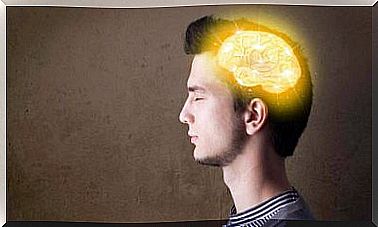Is The Human Being A Rational Animal?

We have often heard that human being is a rational animal, but is that really so? Studies around a person’s everyday thinking and behavior show us that this statement can be wrong, especially if we take it as absolute.
Thus, it is common to refer to the human intellect as a differentiating factor with respect to animals. Even the term rational animal is used with a connotation of superiority. However, these definitions often have interesting nuances that are worth understanding.
We are going to divide the reflection that concerns us into two parts to better understand it. In the first one, we are going to try to shed light on what it means to be an animal. And in the second, we will talk about the rationality of people and how they make use of it.
The human being as one more animal
The human being is categorized as a living being within the animal kingdom. This is because it fulfills the characteristics and functions of an animal (for more information you can consult this link). On the other hand, there is also no shortage of works that emphasize something very common: that people are endowed with intelligence and reason. Two concepts that apparently distinguish us from animals.

Intelligence in living beings
Now, intelligence is still an adaptation to the environment, necessary for the survival of the species. Just as a cat or a dog survive because they have claws and teeth, the human being has intelligence as one more resource to survive.
- In fact, if humans had not had that flexibility and cognitive ability, we would have possibly become extinct (we are not the most agile or the fastest or the tallest or the shortest).
- There are also experts who defend that we are the most adapted species. In reality, when we speak of adaptation and natural selection, the terms more or less do not make much sense: an adapted species is a species that exists without any serious danger of extinction.
- Therefore, all or most of the species that are not extinct, for the moment, are adapted.
The truth is that our plasticity allows us to inhabit very different areas of the earth, with very different conditions. But we are not unique in that either, many bacteria are better than us in expanding. In this sense, we are one more animal, with our particular characteristics, but neither better nor worse than those of other living beings.
The rational animal
A second aspect to deal with, regarding the question that gives title to the article, is another question: what does rational mean within the concept of “rational animal”.
- By chance, we understand rational as that ability to assess problems or events objectively and respond to them logically. We can also understand it as the antonym of emotional or instinctive.
- The emotional and rational isociary biologist is meaningless.
This is so because our behavior is always influenced by both parties, and in many cases it is impossible to separate one influence from another. Yes, it is true that sometimes there is more involvement of the emotional aspects and at other times we are more rational. However, even so we cannot see them as two independent ways of acting: both continually influence each other.
The human being and heuristics
But let’s put emotion aside, and talk about the extent to which our neocortex is “rational.” From the psychology of thought a comparison of human logic with Aristotelian logic has been made. The latter represents the purest and most mathematical reasoning possible. Scientists quickly realized that the two ways of thinking did not match.
- Now, if human beings do not use logic when thinking, what is their way of reasoning like? If we want to find an answer, let’s think that human beings have limited cognitive resources and in many cases need to act quickly.
- If we were able to be “purely logical”, we would spend an enormous amount of resources to make each decision and we would be able to emit complex answers. However, it’s not like that, is it?
- Because of this, people reason through mental shortcuts, known in psychology as heuristics. These are reasoning based on probability and experience, direct or indirect.
- At the level of adaptation, it is more profitable to make a probable reasoning, assuming a controlled risk that it is not correct, than to end this risk and take forever to make decisions.

Is the human being a rational animal?
After observing the data about human thought and behavior we can make several reflections. The statement “the human being is a rational animal” must be taken with great care and a certain distance. Rational or not, in principle we cannot say that this positions us better or worse compared to other living beings when we talk about adaptation.
On the other hand, studies tell us that we are never strictly rational, in fact in many of the important decisions we are not and we act according to what our intuition or our heart (our most instinctive and primitive part) dictates.
One way of calling ourselves, coined by social psychology, is that of “cognitive paupers.” This adjective has a reason: our brains are programmed to economize as much as possible the resources that we have. Depending on the importance of the event or problem, you will carry out a more or less elaborate reasoning, but always trying to save effort.









